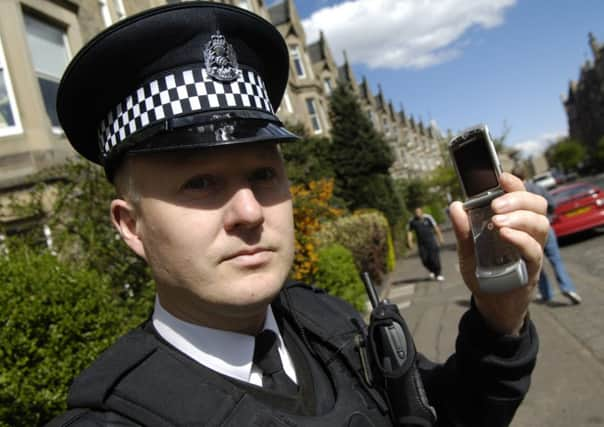£650k stolen from bank customers in ‘vishing’ con


Fraudsters have taken more than £650,000 from just 16 people in the past six weeks after customers receive a telephone call from someone claiming to be from their bank.
Known as “vishing”, the scam involves convincing a person their account has been hacked and encourages the victim to then transfer their money.
Advertisement
Hide AdAdvertisement
Hide AdA 53-year-old woman from Edinburgh, who has asked to remain anonymous, was targeted by the “sophisticated and elaborate” scam with instructions on how to move £163,499 into a new account.
Her bank managed to stop £100,000 before the transfer was completed but the remainder did go through.
Around £20,000 was recovered after an investigation and the bank reimbursed the rest. Police in Edinburgh are now working with the banking sector to launch a campaign warning people about the scam.
All public branches of the main high-street banks will display posters reminding the public never to give out their details if they are cold-called, while police will distribute crime-prevention leaflets across the city giving information on how to avoid becoming a victim. The woman said she considered herself to be competent and security-aware in dealing with her finances but fell victim to the “well-organised scam probably carried out by professional criminals”.
She said the most convincing part of the scam was when the caller told her to report the supposed crime by phoning the emergency fraud number on her bank card.
However, the fraudster had simply kept the line open when she dialled. They then pretended to answer and, unbeknown to her, she was still speaking to them and not to her bank.
“The call to our home came late in the evening just after 10pm when we were tired and unable to go to our branch,” said the woman.
“The main fraudster was articulate, fluent in giving directions about what we had to do to ‘protect our money’ from criminals whom, we were told, were actively hacking into our accounts trying to move large sums out illegally as we spoke,” she added.
Advertisement
Hide AdAdvertisement
Hide Ad“This fear of loss, once created, and the constantly reinforced message that very urgent actions were required, underpinned and drove the way that the subsequent scenario played out.
“There followed possibly the worst five days of our lives during which both the banks and police investigated our case.
“During this time, we had no idea whether or not any of the money that had been stolen would be returned to us.”
She said she realised she had a “very narrow escape” as all the stolen money was returned, but her trust in human nature had been “seriously diminished”.
Chris Wilson, RBS Scotland managing director, added: “Fraudsters work by creating fear. No bank will ever ask a customer to transfer their savings to ‘protect the funds’.”
The term “vishing” refers to “phishing” – an adaptation of the word fishing – and applies to gaining personal information from victims using a voice down a phone line.